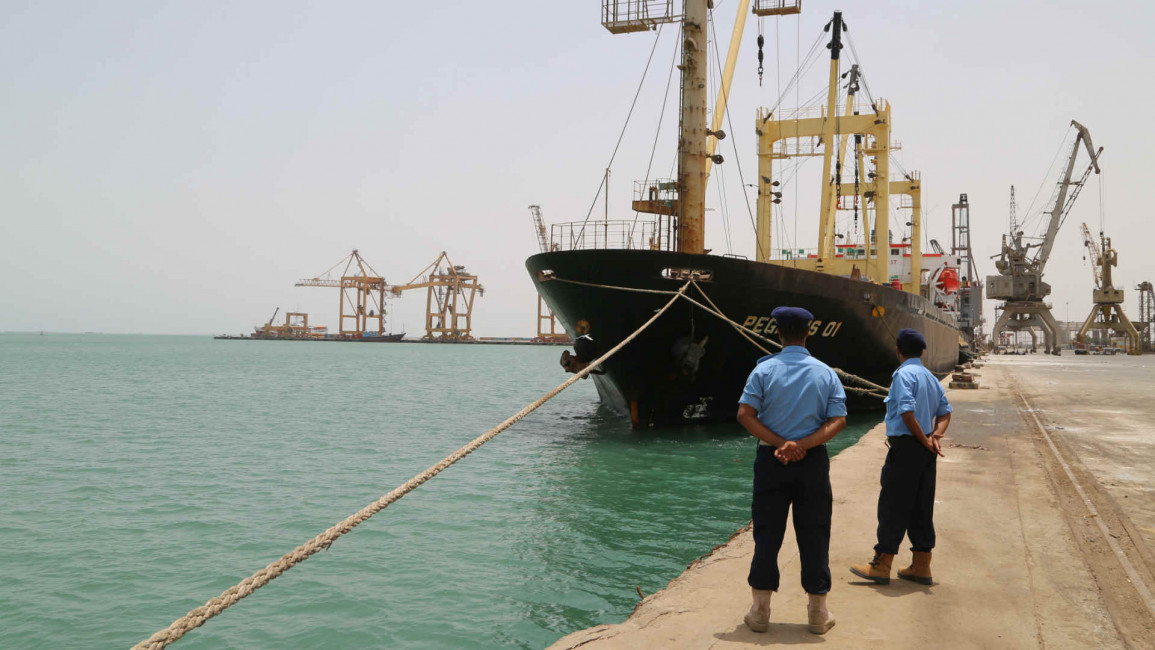Boris Johnson is keeping plan to send British troops to Yemen 'on the table'
Prime Minister Boris Johnson is keeping the option to send British troops to Yemen to take over a lifeline port "very much on the table," according to UK government officials.
Johnson first supported the idea of sending British royal marines to the war torn country in his role as foreign secretary.
The proposed operation "envisaged royal marines taking over Hodeidah", The Independent reported. Hodeida port is one of the only effective means by which to bring aid into Yemen - where some 80 percent of the population is in need of aid.
A Saudi-led coalition, backing Yemen's internationally recognised government, has been at war with Houthi rebels since 2015.
Any involvement by British troops would first need to be agreed with the two warring sides.
"We are prepared to help with humanitarian missions if we can and if they are necessary, that certainly remains very much on the table," said one government official concerning the Hodeida mission.
The idea was first proposed by MP Tobias Ellwood in 2017, according to The Independent. Prime Minister Johnson reportedly encouraged Ellwood to pursue the idea.
After Ellwood moved from the Foreign Office to the Ministry of Defence in 2018, he suggested the plan at a strategy meeting.
|
Ellwood also discussed the idea with Saudi Arabia and the United Arab Emirates.
"There was invaluable support from John Kerry and other senior US figures, and Boris was very encouraging," Ellwood told The Independent.
Former Prime Minister Theresa May and her government decided against the idea out of fear British troops would be drawn into conflict.
"I hope now that Boris is at Downing Street we would not shirk missions such as these when they become necessary. My impression is that he will want to take action," said Ellwood.
Representatives from Yemen's government and Houthi rebels tasked with pulling forces out of the key port city of Hodeida met mid-July for the first time in five months.
The redeployment from Hodeida is a critical part of a ceasefire deal reached in December in Sweden that calls on the government and the Houthis to move forces away from the port.
The pullback was supposed to have taken place two weeks after the ceasefire went into force on December 18, but that deadline was missed.
The UN is hoping that a de-escalation in Hodeida will allow desperately-needed food and medical aid to reach millions in need in Yemen.
The Red Sea port is the entry point for the bulk of imported goods and relief aid to Yemen, which the United Nations has described as the world's worst humanitarian crisis.
The Yemen conflict has killed tens of thousands of people since the Saudi-led military coalition intervened in support of the beleaguered government in March 2015, according to the World Health Organization.
The fighting has also displaced millions and left 24.1 million - more than two-thirds of the population - in need of aid.
Agencies contributed to this report.Follow us on Twitter: @The_NewArab


![President Pezeshkian has denounced Israel's attacks on Lebanon [Getty]](/sites/default/files/styles/image_684x385/public/2173482924.jpeg?h=a5f2f23a&itok=q3evVtko)



 Follow the Middle East's top stories in English at The New Arab on Google News
Follow the Middle East's top stories in English at The New Arab on Google News


